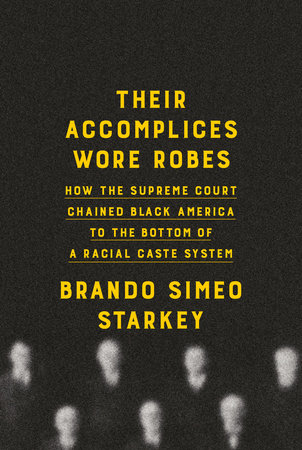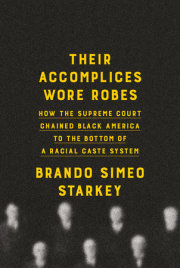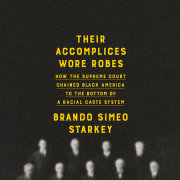First Leg: The Trinity Conception
West Virginia’s second capitol, in downtown Charleston, an Italianate building with Romanesque flourishes, provided coal country architecture fit for Milan. Within its three stories, in February 1873, the Democrat-dominated legislature debated a bill that would help sculpt a post-slavery racial caste system.
Separating from Virginia, a split nearly a century in the making, West Virginia became the thirty-fifth state in June 1863, remaining loyal to the Union. The Republican Party had controlled West Virginia politics since its genesis. Ahead of the 1870 elections, a contingent of West Virginia Democrats asked Delaware Democratic senator Willard Saulsbury how the party could attract Black voters, less than 5 percent of the state’s voting population. Saulsbury cautioned that the time remaining until the election seemed “too short to pull the wool over their eyes.” He advocated they scream “White man’s party” instead because enough “ignorant white men” populated the state “who would [normally] vote the Republican ticket that we can get to vote ours.” It worked, and in January 1872, West Virginia held a convention to write a new constitution. Inside a small, run-down Charleston church, seventy-eight delegates, sixty-six of them Democrats, huddled. The most conservative Democrats favored a constitution that restricted Black rights. One Democratic delegate, George Orrick Davenport, a volunteer Union soldier, joined his party’s larger contingent, moderates who opposed a constitution that undergirded a racial caste system.
A year later, that strain of anti-Black animus endured and inspired discussion about a White-male-only jury law. The bill appeared destined for history’s dustbin—its opponents denounced it as violative of the state constitution. Davenport, also a member of the legislature’s lower house, expressed that the constitution he had helped write prohibited such racial exclusion. “If the [state] Constitution don’t protect citizens from class legislation,” Davenport contended during open debate, “he was sorry that he had been a member of the Convention that framed it and was furthermore sorry that he had voted for it.”
Even though he “was as much opposed to [Black jurors] as anybody,” the former Army lieutenant believed the 1866 Civil Rights Act, which Congress, in May 1870, reenacted under the Fourteenth Amendment’s enforcement clause, “provides there shall be no distinction on this question.” Davenport “didn’t want to force negroes on juries but thought that under the laws of the United States, they had rights there, and we had no right to debar them.” Many White folk shared similar misgivings. In July 1865, Ohio Republican congressman James Garfield confessed privately that he harbored “a strong feeling of repugnance when I think of the negro being made our political equal and I would be glad if they could be colonized, sent to heaven, or got rid of in any decent way. . . . But colonization has proved a hopeless failure everywhere.” And thus men like Davenport held their nose and downed their gruel.
After a long day of debating the bill, Davenport, a slender-faced White man with full dark hair and a mustache, sat in a barber’s chair. As Black men waited on him, he remarked, “Well, if you niggers know how much I have done for you today, you would wait on me for nothing.” Caste preservationists, though, resuscitated the bill. The Charleston Courier advised readers that “it was hardly consistent to provide for securing intelligent jurors . . . and then flood the jury boxes with ignorance by admitting negroes indiscriminately.”
On February 19, 1873, rancorous debate erupted in the capitol. Representative John J. Thompson commanded the floor and offered his worldview to his colleagues, elbowing them toward the realm of racial subordination.
“Mr. Speaker,” he said, “I want it understood that I am opposed to nigger jurors. I will never consent to make them the equal of the white man. I have many reasons for my position; the most important of which is because a nigger is a nigger. . . . For my part, sir, I would rather have no juries at all than to force white men to sit with them.”
Representative W. H. Reynolds, in opposition, urged his colleagues to accompany him to the enlightened world. “The doctrine that all men are created equally free has been lifelong with me. I have always believed it and have always maintained it. It is but simply justice, and I propose to stand by it to the last.”
These worldviews routed West Virginia toward rival destinations—White-over-Black racial dominance or coequal governance. On March 12, 1873, the legislature limited jury service to “all white male persons, who are twenty-one years of age, and not over sixty, and who are citizens of this state.” Caste preservationism triumphed.
Because of the state’s poverty, White West Virginians especially cherished the racial caste system. Many poor White people constructed their identity on their supposed superiority over “the nigger.” Laws like this one diverted their attention away from a bitter truth—a common oppressor, White men who hoarded a nation’s wealth, subjugated the “nigger” and the poor White man alike. White Supremacy, evil but ingenious, convinced the poor White man to fixate on cultivating anti-Black hate rather than love for economic self-interest. Henry Wise, pre–Civil War Virginia governor, explained that convincing poor White people of their equality with their economic betters hinged on the caste system. “Break down slavery,” he insisted, “and you would with the same blow destroy the great democratic principle of equality among men.”
Since West Virginia never seceded, its Reconstruction proceeded as it did in Maryland, Delaware, and Kentucky, loyal border states. Beyond the ending-slavery requirement, minimal federal intervention encumbered those states. That hands-off approach, and a small Black population, enabled the Democratic Party’s quick assent in West Virginia. Just four of the eleven southern states, Tennessee, Virginia, North Carolina, and Georgia, had returned to Democratic hands when West Virginia passed its jury discrimination law. Meanwhile, the Republican-led southern states, particularly ones with large Black populations, like South Carolina, Mississippi, and Alabama, elected Black men to statehouses that enacted some fairly egalitarian laws.
But White southerners were salivating to reclaim the crown. The Supreme Court upholding West Virginia’s jury law would suggest that caste preservationists could install legislation that expunged Black people from other facets of civic life too. The Civil War and Reconstruction had destroyed the slave system. Caste preservationists needed an answer: “Can we implement laws that explicitly deny black people rights in order to water a new fountain of oppression?”
During the state’s constitutional convention in 1872, Black citizens had petitioned for a provision that would specifically enable Black jury service. The convention’s chairman waved them off. The new constitution, he vowed, would prohibit race distinctions. After the passage of the jury discrimination law, at least two options presented themselves to its foes who believed it violated The Trinity. Sue the state, arguing that the Constitution barred it, or wait until a Black criminal defendant raised the issue at trial, a scenario requiring a crime.
Stand alongside me, on April 17, 1872, in the upstairs back room of a two-level wooden frame house in Wheeling, West Virginia. The Ohio River severs this city in two. Taylor Strauder, his wife, Annie, and her nine-year-old daughter from a previous marriage, Fannie Green, live in the more populous area, which cradles the river’s coastline, with the Appalachian Mountains looming in the eastern sky. Spot the bed, lounge, and rocking chair in front of the fireplace. Notice, on the hearth, that tool normally stored downstairs to chop wood. A hatchet.
Strauder is leaving their home this night after Annie asked him to buy yeast. He enters the nearby Miller’s Saloon instead. In the back room, the biracial carpenter sees a Black man named Elijah Pullins.
“You damned son of a bitch, you better go home,” Pullins taunts, among dominoes-playing patrons. “I suspect there is someone in bed with your wife now.”
Strauder, formerly enslaved in Augusta County, Virginia, doesn’t respond. Such cuckold quips often flew in his direction, especially from Pullins.
When Strauder returns home, he opens the front door and swears he sees a White man fleeing through the back door. He confronts Annie, but she denies the accusation, inciting a fight. The two wedded in June 1871, and trouble defined their relationship. He would insist she cheated on him. She had him arrested for threatening her life once, but they reconciled. They always reconciled. This latest tempest stretches into the wee hours of the morning but relents enough for them to sleep on that bed.
The next morning, Annie wakes up and sits in the rocking chair. Strauder, preparing for work, plops on the lounge, awakening Fannie, asleep under the covers. The couple refresh their quarreling.
He asks Annie, “Where are my shoes?”
“I suppose they are where you put them last night.”
Nearby, Lucinda Thomas prepares her two small children for Annie, her older sister, to babysit this rainy morning. Lucinda reaches her sister’s home at about thirty past six, enters the door, steps in a few paces, and a macabre scene freezes her. Annie seated in a rocking chair. Her head collapsed into her chest and resting on her right arm. A stream of blood rushing down her temple, over her eyes, running off the cliff of her nose, diving onto the floor, and splashing into an expanding crimson pond. About three feet away rests the hatchet with coagulated blood gluing Annie’s hair to its hammer side.
Lucinda hurries to the house of the local justice of the peace, Robert Gillespie, who tells her to alert Officer Robert Junkins at his home while he scurries to the crime scene.
Let’s mix with the crowd gathering outside the Strauder home. See those twelve White men entering? The ones who look like regular citizens? They will serve on the coroner’s jury, which determines cause of death. Gillespie directed the police to summon them. Despite The Trinity, the officers selected only White men. Black men account for 40 percent of the county’s male population.
Many have crusaded for the principle that America must bestow to all the same justice. Equal justice. We cherish this principle for various reasons. For one, a matter concerning an individual’s rights implicates the rights of an entire group. West Virginia cannot deny Strauder his rights because of his Blackness without infringing the rights of the entire race. For the law to afford Strauder equality, he must have it always, not merely when society sees fit to provide him that. Those twelve White men who serve on this coroner’s jury—West Virginia continually replicates this spectacle. But this murder occurred before the state will pass its jury discrimination law. In absence of that law, the police chose to summon only White men.
“Taylor Strauder killed my mother with a hatchet,” Fannie testifies inside the home, her mother’s corpse still on the floor. Gillespie issues an arrest warrant, describing Strauder as a “very light mulatto about thirty-two years of age; about five feet ten inches in stature and stoutly built” with a “rather spare face, with high cheek bones, [who] wore when last seen here a scattering beard on his chin.”
On April 25, some Pittsburgh, Pennsylvania, police officers caught the first Wheeling-bound train with Strauder in tow. The officers had arrested him in their city shingling a house the day before. When the streetcar stopped opposite Gillespie’s office, the guards removed Strauder from it, allowing an angry mob to punch him with sticks and blast him with insults. Wheeling policemen forged a path through the crowd, and Gillespie ushered Strauder and the guards into his office. Gillespie asked Strauder about his readiness for a probable cause hearing. He replied he could participate the next day.
The guards returned Strauder outside. Cries of “shoot him” and “hang him” flew from the swelling mob. The police formed two lines and, with Strauder placed in between, marched to the jail. Hundreds of onlookers tailed the contingent, berating Strauder the entire way. He passed under the rounded archway of the Ohio County jail and entered his new home, a cell.
The Black members of the mob wanted the justice system to punish the man who had slaughtered one of their own. The system, to produce that outcome, foreshadowed that it would deny Strauder his rights because of his race, a wrong states freely committed when believing courts will pardon them. Black folk would grow accustomed to this posture, seeking protection from a system that deprives them of their rights.
The next morning Strauder sat for his probable cause hearing, held in the jail. Upon learning of Strauder’s lack of legal representation, George Davenport entered the jail. Davenport, the state legislator who would the following year oppose the exclusion of Black men from juries, conferred privately with Strauder, christening a bond that would span more years than either could have predicted. Fortune shone on the moneyless Strauder that day when Davenport, a skilled attorney of seven years, agreed to represent him pro bono.
Fortune shone on Davenport too. Strauder’s defense presented him, a well-respected member of the state bar, his last best opportunity to leave his mark on the profession. Thirty-one years old, Davenport wouldn’t see forty. With no wife or children, he threw himself into lawyering and legislating. A loyal Democrat who called his party “incorruptible,” Davenport, smart and honorable, exhibited a “natural kindheartedness and a freedom from malice and wickedness singularly attractive to those who knew him best,” a friend remarked. Davenport battled alcoholism—during a legislative session in 1873, the Speaker for the West Virginia House of Delegates had the sergeant-at-arms arrest some legislators, including Davenport, for missing votes. Davenport blamed whiskey for his absence. Four years later, he headed a Christian temperance society. One time Davenport, principled, chastised a judge he felt inadequate and threatened to imperil his career. The judge held him in contempt and sentenced him to five days in jail. On another occasion, Davenport scolded an opposing counsel during open court for untruthfulness. That counsel punched Davenport, who returned the blow.
After Fannie and other witnesses testified, the hearing ended—the state proved probable cause. On May 20, 1872, an all-White grand jury indicted Strauder for murder. Davenport twice asked for continuances, stalling the case a year. Not until May 8, 1873, two months after the state legislature passed its jury discrimination law, did Strauder hear a verdict.
“We the jury find the prisoner guilty of murder in the first degree,” said the foreman. Strauder “sank to his seat, overcome, his legs refusing to longer sustain him,” a reporter observed. Two months later, Judge Thayer Melvin sentenced him to be hanged. The Supreme Court of Appeals of West Virginia, however, reversed his conviction on an arcane technicality, granting Strauder another trial.
Davenport and his thirty-one-year-old mentee Blackburn Barrett Dovener, who assisted him, studied The Trinity with an eye toward invalidating the jury discrimination law. Within the law office of Davenport & Dovener at 174 Fourth Street, they focused on the Fourteenth Amendment. The Thirteenth referred to slavery. The Fifteenth to voting. But the Fourteenth spoke to equality. Two clauses from the amendment’s first section must have grabbed them.
First, the Privileges and Immunities Clause: “No state shall make or enforce any law which shall abridge the privileges or immunities of citizens of the United States.” The “privileges or immunities of citizens of the United States” refer to the rights Americans possess because of their national citizenship, presenting the opportunity to raise at least two arguments: a narrow one beneficial to Black criminal defendants and a broader one beneficial to the entire Black population. First, they could have argued that Strauder’s American citizenship included a privilege, or a right, to a trial with an impartially selected jury panel. Or, second, that the clause granted an immunity from a state treating a citizen as a member of a degraded caste—an individual’s immunity from castework—a right which the jury discrimination law had violated. But an obstacle stymied those arguments—in April 1873, nearly a year after Annie’s murder, the Supreme Court neutered the Privileges and Immunities Clause in the Slaughter-House Cases.
In 1869, the biracial Louisiana legislature passed “an act to protect the health of the City of New Orleans” in response to the squalor, stench, and unsanitary conditions the butchering industry unleashed upon the city. Plying their trade near schools and hospitals, butchers discarded decaying animal carcasses on unpaved roads, in the Mississippi River, wherever, and leaders partly blamed cholera and yellow fever, diseases responsible for thousands of deaths, on such practices. The law forced butchers to relinquish their fly-swarmed shops and pay to operate from the monopoly Crescent City Slaughter-House, located across the river. Some butchers, White men, sued, arguing that the law violated their Fourteenth Amendment rights.
John Archibald Campbell, a former Supreme Court associate justice who had resigned and then served as the Confederacy’s assistant war secretary, represented the hundreds of butchers who sued the state. He argued that the slaughterhouse law violated parts of The Trinity, including, specifically, the Privileges and Immunities Clause, because it denied the butchers’ right to practice their occupation, what Campbell called a privilege of American citizenship. Campbell spearheaded multiple lawsuits to invalidate laws that Louisiana’s Republican-majority legislature enacted. Previously, the legislature passed laws like one forbidding school segregation and another making race discrimination in public accommodations a crime. Such enactments enraged caste preservationists and set them against anything the legislature passed. Campbell chased a transparent objective—harness The Trinity on behalf of White “victims” to undo works of a legislature elected in a majority-Black state.
Writing the Supreme Court’s five–four majority opinion, Justice Samuel Freeman Miller, Republican-appointed, ruled against Campbell but awarded caste preservationists an unexpected bounty. The rights implicated in the Privileges and Immunities Clause, Miller wrote, defining them narrowly, included “the prohibition against ex post facto laws, bills of attainder, and laws impairing the obligation of contracts.” Miller’s argument defied logic—the original Constitution already protected these rights.
Justice Joseph P. Bradley, one of four justices who disagreed with the majority, wrote a dissent that explained the Privileges and Immunities Clause’s true meaning. Bradley honored Congress’s choice to fundamentally alter American democracy, a choice endorsed by the people who voted overwhelmingly for the Republican Party in the 1866 midterm election, where the Fourteenth Amendment rose above all other campaign issues. Bradley observed that people had state citizenship and federal citizenship. Before the Fourteenth Amendment, state citizenship, the primary form of citizenship, provided citizens protection of their civil rights. Federal citizenship was secondary. The Fourteenth Amendment inverted that, making the federal government the leading guarantor of civil rights.
“If a man be denied full equality before the law, he is denied one of the essential rights of citizenship as a citizen of the United States,” Bradley wrote. The privileges and immunities of the citizens—“the right of personal security, the right of personal liberty, and the right of private property”—were fundamental rights. They encompassed the rights in the Declaration of Independence, the right to “life, liberty, and pursuit of happiness,” which “belong to the citizens of every free government.” Bradley further explained that the rights included in the Bill of Rights, like the right to free speech and peaceable assembly, and against unreasonable searches and seizures, were among those fundamental rights now protected by the Fourteenth Amendment against state intrusion. Simply put, American citizenship had always given the populace a civil rights bucket. Prior to the Fourteenth Amendment, though, the Constitution contained no express grant of power that allowed the federal government to protect that bucket from state intrusions. The Fourteenth Amendment cured that congenital defect.
“The amendment,” Bradley wrote, “was an attempt to give voice to the strong National yearning for that time and that condition of things, in which American citizenship should be a sure guaranty of safety, and in which every citizen of the United States might stand erect on every portion of its soil, in the full enjoyment of every right and privilege belonging to a freeman, without fear of violence or molestation.”
Seeking to counteract Campbell’s gambit to stymie Louisiana’s biracial legislature, Miller narrowly interpreted the Privileges and Immunities Clause, revoking its utility for the cause of Black freedom. Contending that the West Virginia law violated “the privileges or immunities of citizens of the United States,” would, therefore, slam Davenport and Dovener into a roadblock.
The duo ultimately reached for the Equal Protection Clause: “No State shall . . . deny to any person within its jurisdiction the equal protection of the laws.” The Court most fully untangled that clause in Miller’s Slaughter-House Cases opinion. “The existence of laws in the States where the newly emancipated negroes resided,” he wrote, “which discriminated with gross injustice and hardship against them as a class, was the evil to be remedied by this clause, and by it such laws are forbidden.” When West Virginia limited jury service to White men, did it not discriminate with gross injustice and hardship against Black folk as a class? One would think. But if the Supreme Court could impoverish one clause, it could another.
Other West Virginia attorneys, in summer 1874, were exploring the same uncharted and unwelcoming seas on behalf of a Black client. Let’s trek eastward, one hundred miles from Strauder’s cell, to Martinsburg, West Virginia.
Copyright © 2025 by Brando Simeo Starkey. All rights reserved. No part of this excerpt may be reproduced or reprinted without permission in writing from the publisher.






